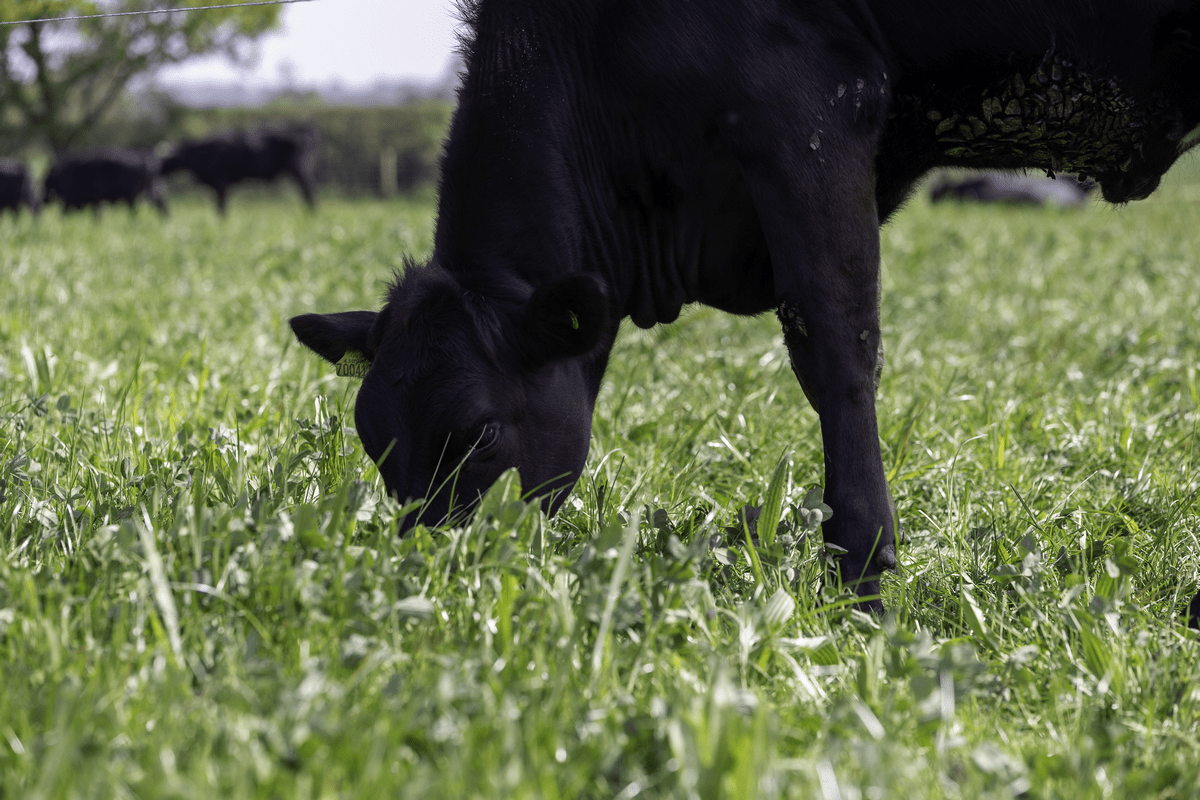New research has revealed multi-species swards offer climate smart credentials alongside productivity and animal performance gains.
Germinal-funded work at University College Dublin (UCD), as well as its own research at Germinal Horizon, is showing how multi-species swards can help reduce greenhouse gas emissions while benefitting animal production.
Professor Tommy Boland and his team at UCD have been supported by Germinal and other industry partners to investigate multi-species. The team has looked at sward productivity, soil health, animal performance and emissions reduction.
Climate smart performance benefits
Both animal performance and environmental gains are seen from the livestock research being done at UCD. Results showed 2.4 kg higher weaning weights on lambs reared on multi-species swards, compared to perennial ryegrass.
Those lambs also reached slaughter weight two weeks earlier than the others, reducing the greenhouse gas emissions from rearing as well as freeing up herbage for other animals.
Parasites were recorded as being slower to build in lambs grazing multi-species swards and, compared to lambs grazing perennial ryegrass (PRG) only, they required 50% fewer drench administrations over their lifetime. This has the potential to significantly reduce the risk of anthelmintic resistance in our flocks.
In the beef from dairy research project, animals were slaughtered at the same weight (629 kg) but those fed multi-species were slaughtered five weeks earlier. This meant beef was raised with lower fertiliser and feed (concentrate and silage) costs.
Compared to the national average data, the carbon footprint of beef produced on the six-species mix was 65% lower. More information about UCD's animal performance results can be found here.
 Performance of multi-species swards
Performance of multi-species swards
Swards comprising different combinations of legumes and herbs have been studied under a range of fertiliser applications.
Results showed several mixes outperformed the control mix of perennial ryegrass, with legumes performing well under low nitrogen conditions. With lower levels of nitrogen needed to grow the same or more dry matter, the environmental impact of the forage grown is reduced.
When this project went on to look directly at nitrous oxide emission from each kilogram of dry matter (DM) grown across all the mixes, the control PRG had the highest.
Another greenhouse gas, nitrous oxide is roughly 300 times more potent than CO2, with agriculture responsible for a high proportion of emissions.
Soil health
Earthworms are a very good indicator of soil health. These trials have shown increased earthworm numbers and activity where legumes were included in the mixes. This too has environmental advantages.
The worms' boring action increases water infiltration and water-holding capacity. In wet conditions, this decreases the rate of run-off and reduces nitrogen leaching but it also has benefits in dry conditions by retaining moisture in soil.
Germinal Horizon
Germinal is committed to supporting farmers with their sustainability goals by investing in research and innovation at Germinal Horizon to complement UCD's research.
The work has focused on mixture performance as well as timings of establishment and sward management. This includes how the different species within the mix interact with each other and how the sub-species perform in different conditions.
Multi-species swards align with policy
"We are at a crucial time for European food production with the Irish government committed to reduce agriculture's greenhouse gas emissions by 25% by 2030," says Germinal Technical Director Dr Mary McEvoy.
"Multi-species mixtures are one of the tools we have in our climate smart toolbox, but we need the research data to help support farmers to reduce their environmental impact while maintaining food production.
"The work done at UCD and Germinal Horizon gives us the confidence and knowledge to manage multi-species well and prioritise our plant breeding objectives for the future."
Ask us about multi-species mixtures

